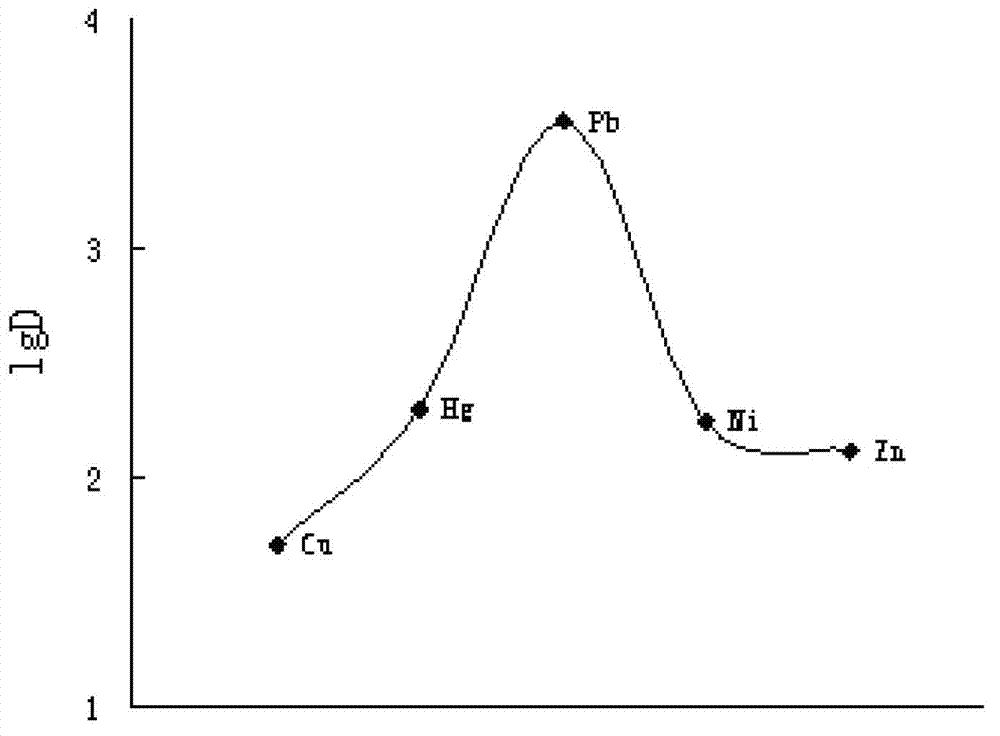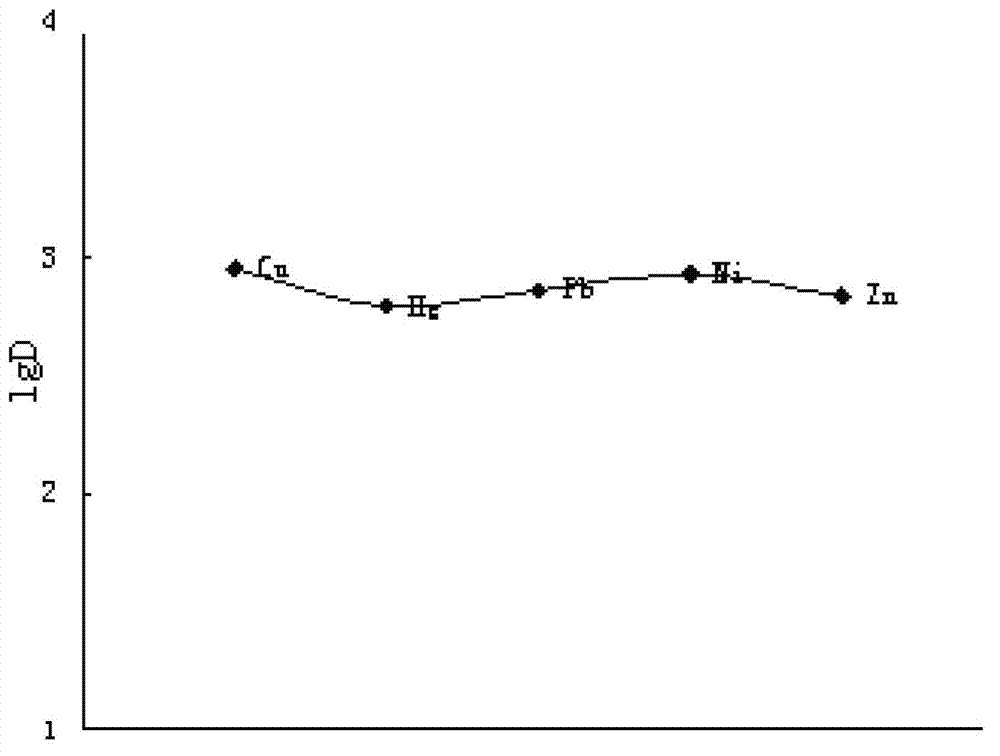Synthesis method of chelate fiber animal protein factor (APF) with selective adsorption on lead ions
A technology of chelating fibers and synthetic methods, which is applied in the direction of fiber types, fiber treatment, chemical instruments and methods, etc., can solve the problems of poor adsorption performance, etc., and achieve the effects of low price, wide source of raw materials, and cost saving
- Summary
- Abstract
- Description
- Claims
- Application Information
AI Technical Summary
Problems solved by technology
Method used
Image
Examples
Embodiment 1
[0044] Embodiment 1, a kind of synthetic method of the chelating fiber APF (hereinafter referred to as chelating fiber APF) that lead ion has selective adsorption, carries out following steps successively:
[0045] 1) Put 20.0 mg of the matrix---acrylic modified polytetrafluoroethylene fiber (PTFE-g-AA) into a 100 mL three-necked bottle, add 25 mL of toluene and soak for 7~9 hours;
[0046] Remarks: The content of PTFE-g-AA functional group (ie -COOH, which can be determined by acid-base back titration method) in acrylic modified polytetrafluoroethylene fiber (PTFE-g-AA) is 3.07mmol / g. It can be determined in accordance with the relevant master's thesis: Wang Zhipeng, Weak acid ion exchange fiber prepared by PTFE fiber irradiation grafting and its application, Nankai University, 2004-5-1. Part 2-3-2 of which can be measured.
[0047] 2) Then add 0.245mmol of ligand-4-aminopyridine to the three-necked flask (that is, the reaction molar ratio of PTFE-g-AA and ligand is 1:4), stir ...
PUM
| Property | Measurement | Unit |
|---|---|---|
| Adsorption capacity | aaaaa | aaaaa |
| Adsorption capacity | aaaaa | aaaaa |
| Adsorption capacity | aaaaa | aaaaa |
Abstract
Description
Claims
Application Information
 Login to View More
Login to View More - R&D
- Intellectual Property
- Life Sciences
- Materials
- Tech Scout
- Unparalleled Data Quality
- Higher Quality Content
- 60% Fewer Hallucinations
Browse by: Latest US Patents, China's latest patents, Technical Efficacy Thesaurus, Application Domain, Technology Topic, Popular Technical Reports.
© 2025 PatSnap. All rights reserved.Legal|Privacy policy|Modern Slavery Act Transparency Statement|Sitemap|About US| Contact US: help@patsnap.com



